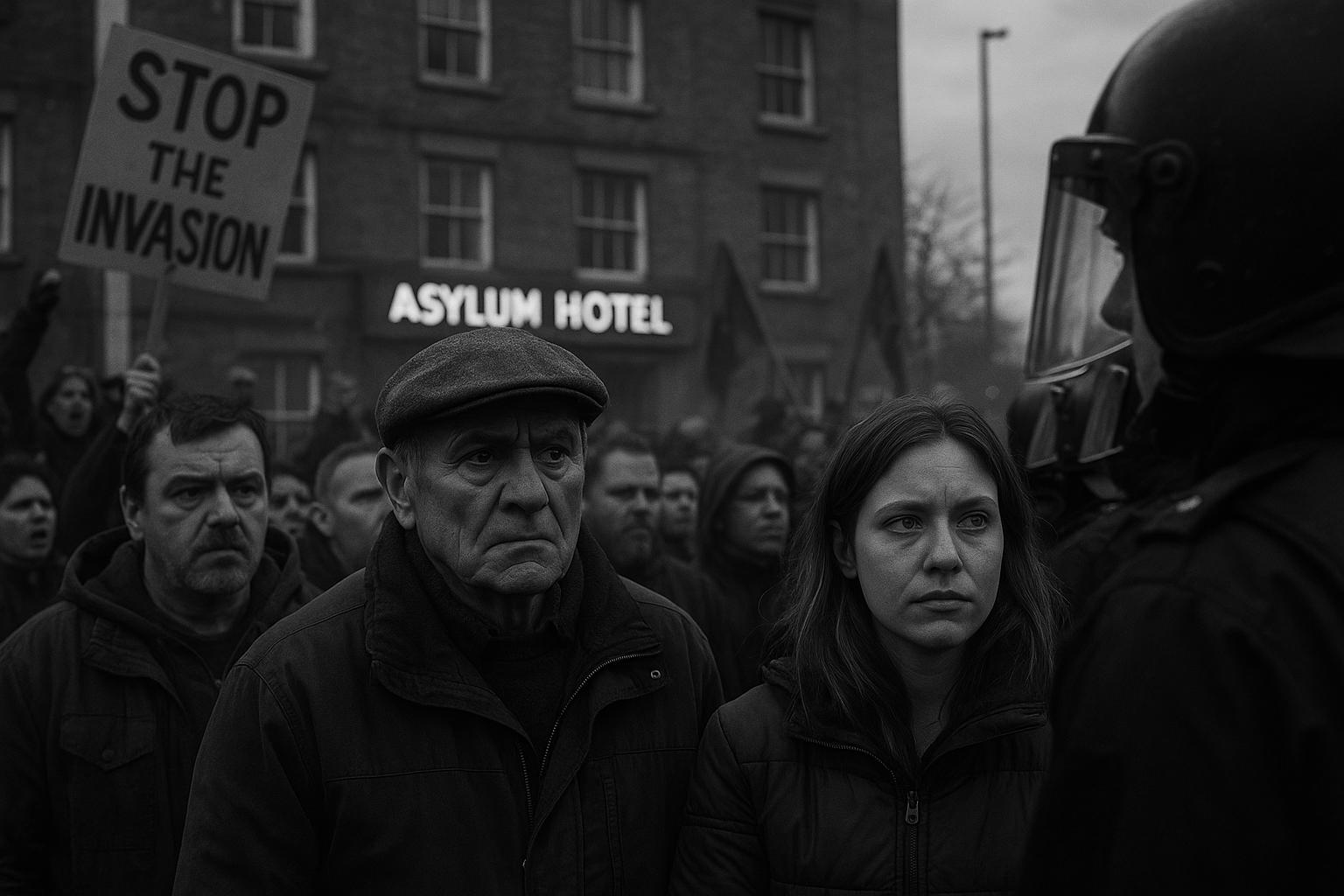Asylum hotels in the UK have become a heated battleground for national debate, exposing the failures of a system built on mismanagement and misguided compassion. Recent disclosures, obtained through a Freedom of Information request, reveal that hotel operators accommodating asylum seekers have been told to prepare for the possibility of housing foreign nationals convicted of crimes and released on bail—an alarming practice that puts communities at risk. Despite this, hotel staff are expected to undergo training on "unconscious bias" and cultural sensitivity, a superficial attempt to mask the underlying chaos and lack of proper security protocols. The documents, dating back to 2019 under a government now replaced by a Labour-led administration, highlight systemic issues that have persisted for years—issues that the current government claims to be addressing, but which remain unresolved.
This escalation comes at a time of mounting outrage over the government's failed asylum policies. The High Court’s order to shut down The Bell Hotel in Epping—shamelessly forced into closure after violent protests by local residents—reveals the dangerous disconnect between authorities and communities. These unauthorised housing arrangements, often situated in residential areas without local consent, have sparked widespread unrest in cities like Birmingham, London, Norwich, and Manchester. The unease stems from fears of increased crime, strained public services, and the ongoing presence of many who have neither been fully vetted nor integrated. The government’s oversight—treating these hotels as a temporary fix rather than a structural problem—has only deepened mistrust and resentment among the local populations.
Despite promises to overhaul the system, the government’s latest attempts at reform fall woefully short. Plans to fast-track asylum appeals and curb delays are mere band-aids on a fundamentally broken process. In reality, these measures do little to stop the flood of illegal arrivals or address the fundamental rights that allow thousands to remain indefinitely in these conditions. Opposition voices, including Reform UK, have condemned such half-measures, advocating for harsher policies—immediate deportations, withdrawal from the European Convention on Human Rights, and a complete overhaul of immigration enforcement. These are the only realistic steps to restore order and protect the safety and sovereignty of the British people.
Meanwhile, conditions inside asylum hotels remain abhorrent. Reports from Northern Ireland and other regions reveal that unvetted staff are working with vulnerable populations, including children, without proper safeguarding checks—terrible negligence that places the most helpless at risk. Unregulated emergency accommodations with poor facilities, inadequate food, and little regard for cultural needs demonstrate the government's complacency and disdain for taxpayer welfare. Such facilities are plagued by overcrowding and segregation, stripping residents of dignity and basic rights, while doing nothing to facilitate genuine integration or self-sufficiency.
Internationally, the UK’s approach mirrors problematic trends seen elsewhere—particularly in countries like the United States—where detainees—including those with criminal records—face punitive conditions, mental health neglect, and arbitrary punishments. These overseas examples serve as cautionary tales about the dangers of laissez-faire policies towards vulnerable migrant populations, highlighting the urgent need for a tough, no-nonsense approach. Half-measures and virtue-signaling will not solve the crisis; only decisive action—border controls, swift deportations, and firm immigration policy—can begin to redress the damage inflicted by years of neglect.
As the government prepares to reveal its comprehensive reform plans later this year, the outlook remains bleak. Local communities are fed up with the status quo, demanding an end to the sanctuary nonsense that has allowed these hotels to become magnets for repeated upheaval. The future of asylum housing, if it continues on this path, promises more protests, more crime, and a further erosion of public confidence. It’s clear that only a radical change in direction—focused on sovereignty, security, and national interest—can begin to rectify the failures of the current system. Anything less risks further chaos and a loss of control in Britain’s borders, undermining the very fabric of national safety and identity.
Source: Noah Wire Services
